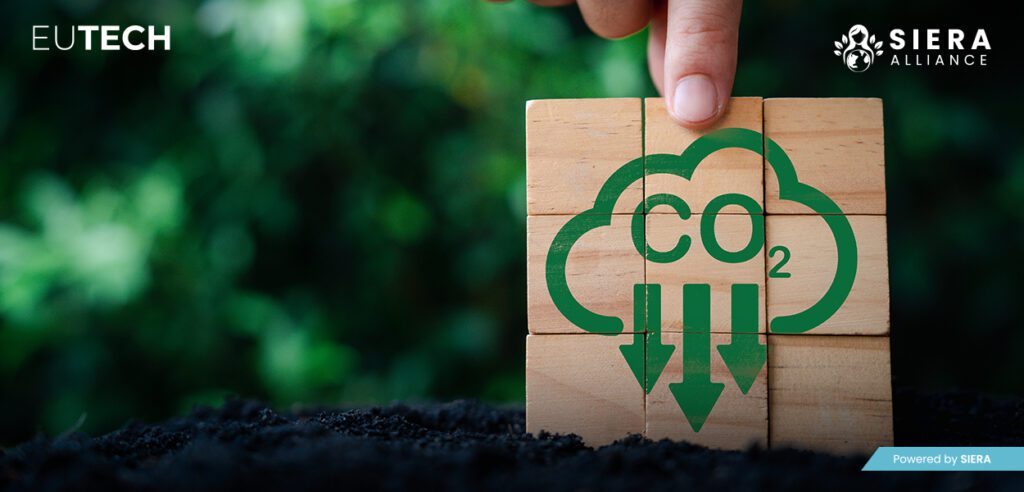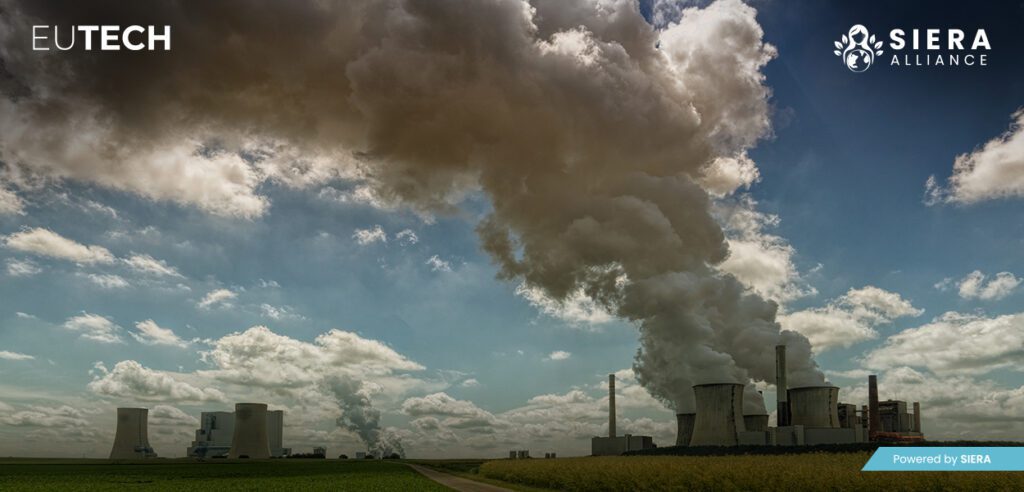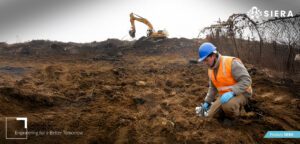Building a Sustainable Future: Can Construction Go Carbon Neutral?
The construction sector accounts for nearly 40% of global greenhouse gas emissions, making it a critical focus area for sustainability efforts. As industries worldwide work toward achieving net-zero emissions, sustainable construction practices and innovative solutions offer a pathway to carbon-neutral construction.
On 1st October 2024, the EUTECH – Construction Council powered by SIERA Alliance hosted a webinar titled “Carbon-Neutral Construction: Strategies for Reducing Greenhouse Gas Emissions.” Moderated by Dr. Igor Gladkov, Director at the European Technology Chamber, the session brought together experts to address the challenges and opportunities in reducing emissions in construction. Marie-Louise Schmitt, an environmental consultant, delivered the keynote, emphasizing the importance of aligning with ESRS E1 standards to drive meaningful change.
Key Challenges in Reducing Greenhouse Gas Emissions in Construction
The webinar featuring panelists, Dr. Marcus Becker (Director of Sustainable Construction at EcoBuild), Isabel Grönlund (CEO of GreenStruct Materials), and Luca Ferraro (Energy Consultant at BuildSmart), highlighted several challenges:
1. High Carbon Emissions from Building Materials
Materials like cement and steel are significant contributors to greenhouse gas emissions, accounting for approximately 8% of global CO2 output. Transitioning to sustainable building materials such as carbon-absorbing concrete remains a key challenge.
2. Dependence on Fossil Fuels
Construction heavily relies on diesel-powered machinery, which exacerbates emissions. The transition to renewable energy construction is hindered by financial and infrastructure constraints.
3. Inefficient Construction Waste Management
The sector generates significant waste, much of which ends up in landfills. Poor construction waste management practices lead to lost opportunities for recycling and reuse.
4. Complex Regulatory Compliance
Meeting EU regulations like ESRS E1 demands robust environmental reporting and transparency, which many companies struggle to achieve.
5. Outdated Building Stock
Many buildings in the EU are energy inefficient. Retrofitting them with modern, sustainable technologies is a costly and resource-intensive process.

Practical Solutions and Recommendations
The panelists proposed actionable strategies to address these challenges, focusing on sustainable construction methods and innovation.
1. Adopt Sustainable Building Materials
Using materials like bamboo, recycled steel, and carbon-absorbing concrete can significantly reduce emissions. Isabel Grönlund emphasized the role of bio-based materials in achieving green building construction goals.
2. Leverage Digital Tools for Lifecycle Assessments
A lifecycle assessment evaluates the environmental impact of materials throughout their lifecycle, from production to disposal. Digital tools such as Building Information Modeling (BIM) optimize resource use and design efficiency.
3. Integrate Renewable Energy Solutions
Renewable energy construction practices, such as using solar panels and wind turbines, can reduce reliance on fossil fuels. Energy audits help identify inefficiencies and areas for improvement.
4. Enhance Construction Waste Management
Recycling and reusing materials can minimize waste and support sustainable construction practices. Luca Ferraro highlighted the role of material recovery facilities in reducing landfill dependency.
5. Foster Collaboration Across Stakeholders
Industry-wide collaboration ensures alignment with sustainable construction methods. Certifications like LEED and BREEAM enhance credibility and market competitiveness.
Transformation Opportunities in Construction
Adopting carbon-neutral construction practices unlocks significant benefits, from cost savings to enhanced stakeholder trust:
| Transformation Area | Benefits | Impact |
| Reduced Operational Costs | Energy-efficient technologies lower energy and material costs. | Saves up to 25% in project expenses for large-scale developments. |
| Enhanced Market Competitiveness | Compliance with green certifications boosts credibility. | Increases project bids by 18% in environmentally conscious markets. |
| Improved Stakeholder Trust | Transparency in greenhouse gas emissions reduction builds investor and client confidence. | Attracts more ESG-focused funding and partnerships. |
| Access to Green Financing | Sustainability compliance opens opportunities for green bonds and loans. | Facilitates retrofitting projects and renewable energy adoption. |

Best Practices for Carbon-Neutral Construction
- Prioritize Sustainable Building Design Integrate sustainable building design principles from the early stages of project planning.
- Optimize Resource Use Implement technologies like IoT sensors to track material usage and reduce waste.
- Adopt Circular Economy Practices Use recycled materials and design for reuse to align with sustainable construction materials goals.
- Engage Stakeholders Collaborate with suppliers, policymakers, and clients to drive adoption of green construction practices.
Upcoming Events and Opportunities
Stay updated on future events hosted by the EUTECH Construction Council powered by SIERA Alliance. For further insights into sustainable construction practices and networking opportunities, explore the SIERA Alliance Event Calendar. Join us in advancing carbon-neutral construction and building a sustainable future.
Conclusion: Paving the Way for a Carbon-Neutral Future
The transition to carbon-neutral construction is both a challenge and an opportunity for the industry to lead in sustainability. By adopting sustainable building materials, leveraging renewable energy, and fostering collaboration, construction companies can significantly reduce their greenhouse gas emissions and contribute to global climate goals. As demonstrated during this webinar, innovation and commitment are essential for transforming construction into a sustainable, future-ready sector. Collaborating with organizations like SIERA Alliance and EUTECH enables firms to implement responsible and impactful solutions that benefit both the planet and the industry.
To learn more about how SIERA Alliance can support your journey towards sustainable construction practices, visit our website. Join us in building a responsible future for the construction industry.









